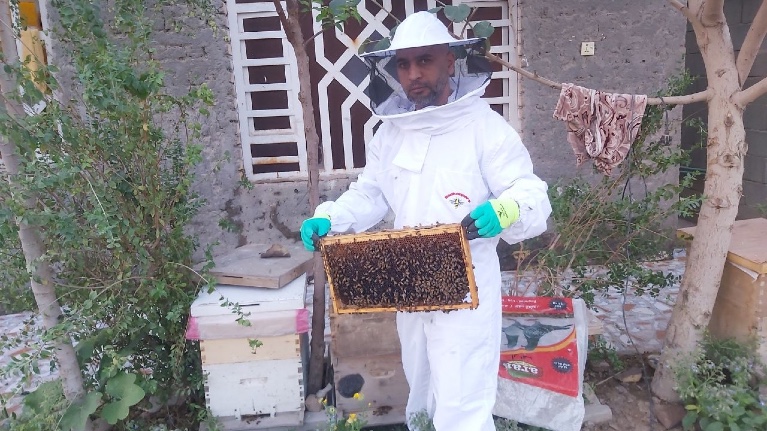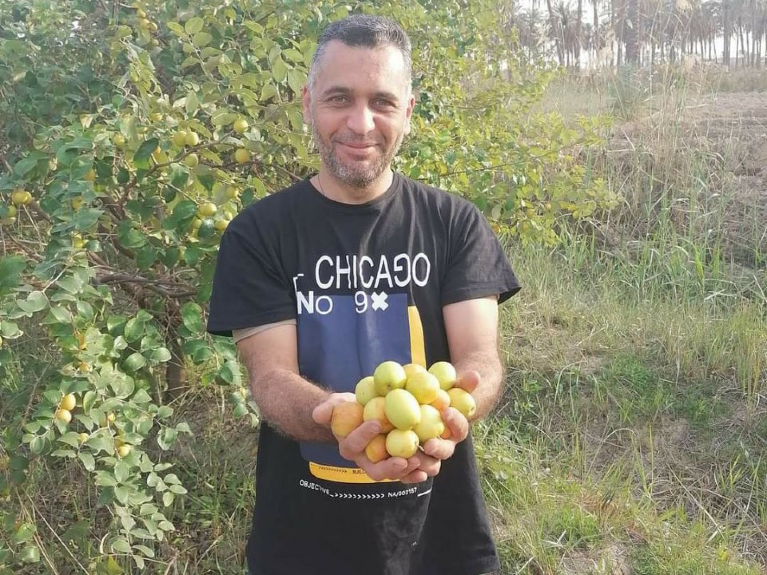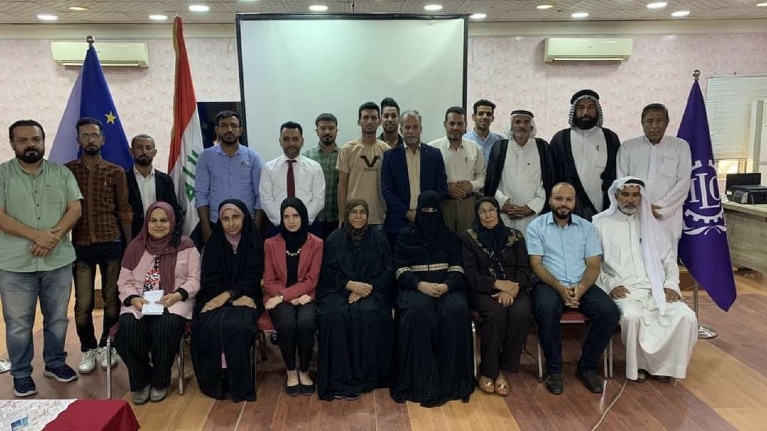Our impact, their voices
Other farmers need the knowledge I learned on Occupational Safety and Health
After completing an ILO training programme on Occupational Safety and Health, Ziad Sa’ad, a beekeeper from Iraq’s southern city of Basra, is raising awareness among his community on the importance of safety at work.

I am a beekeeper from Al Qurnah, a district in the southern Iraqi city of Basra. I also own a small farm which I manage with the help of my relatives and occasionally temporary farm workers.
I have a degree in media and communications, but I have always been a farmer and a beekeeper.
Our community has a relationship with our land that is hard to describe. Our fathers and grandfathers were also farmers. We love our farms, especially our palm trees. Our work and life cycle on these farms are interdependent.
Through our work, we take care of our environment and ensure our trees flourish. Our trees provide us with greenery, they provide us with oxygen, they provide us with shade. Our trees provide us with happiness.
At the same time, our work in agriculture promotes economic opportunities, security and self-reliance. It allows us to be independent.
This is why we try to plant awareness among our community on the importance of our farms, especially in these areas here, which are poor.

We have set up different groups on Facebook and WhatsApp that specialise in Sidra trees, date farms, and beekeeping, among other things. We discuss issues related to agriculture – the challenges that farmers face – and we try to provide suggestions or guidance.
In October last year, I joined a six-day training programme by the International Labour Organization (ILO) and the Peace and Freedom Organization (PFO) on Occupational Safety and Health. The training covered issues relating to safety at work, and to different types of work-related injuries and ways to prevent them. We also discussed the importance of having safety guidelines at work, and the importance of training sessions for farm owners and workers to raise their awareness on the dangers associated with farm work.

We also added some of our instructors to these groups, so if we have any questions or concerns, we can contact them directly. They help raise awareness among farmers on the use of fertilizers and pesticides and the dangers associated with them, the use of protective gear such as goggles and gloves, and other issues that concern the farmers.
Many of the farmers do not have access to this information. But they all need to be made aware of these issues. We were told during the training that over two million people die each year around the world from occupational injury or illness. This is why it is so important for workers to have the knowledge they need to ensure their safety and health in the workplace.
****
Ziad Sa’ad took part in a six-day Occupational Safety and Health training of trainers programme in Basra, implemented by the International Labour Organization and the Peace and Freedom Organization under the framework of an ILO project titled “Enhancing labour governance, inspection and working conditions in response to COVID-19, ” which is supported by the European Union. The training, which also took place in Dohuk, targeted a total of 42 women and men from different backgrounds, covering issues related to Occupational Safety and Health and training techniques, based on ILO guidelines.